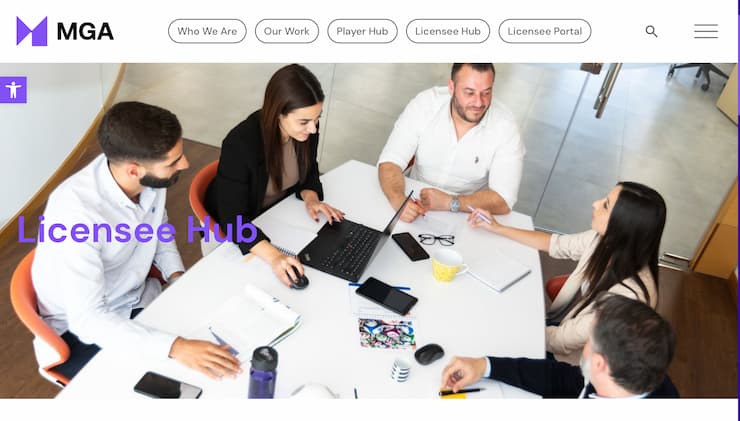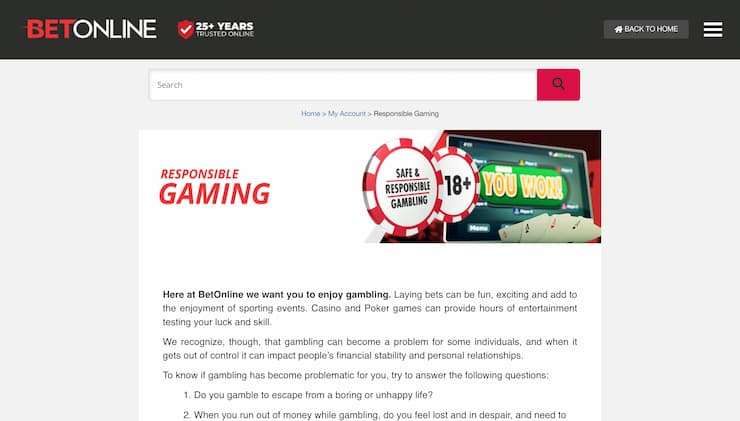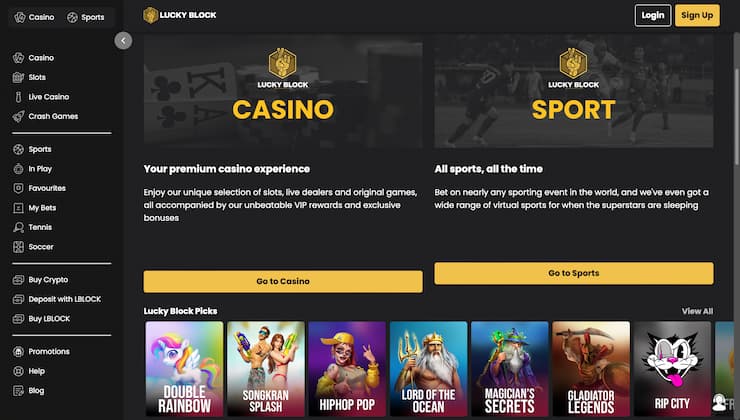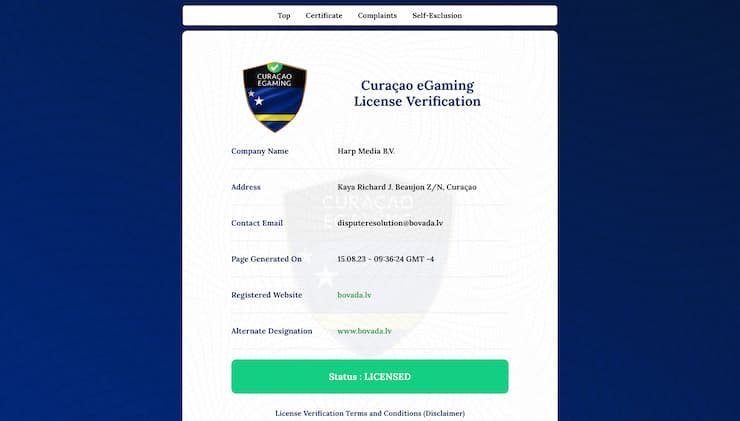The Internet is full of online casinos, but knowing which to trust can be a challenge. Using sites that feature an online gambling license can help ensure that you get a safe and fair experience and that you’ll find help if you need it.
By reading through this guide, you’ll understand what online gaming licenses are and what online gambling businesses must do to get them. We’ve also explained why different countries offer their own gambling licenses and which jurisdictions are considered to be the best in the iGaming industry.
Understanding Online Gambling Licenses
The simplest definition of a gambling or gaming license is a legal document that gives an online gaming business permission to operate in one or more specific territories.
Land-based casinos and sports betting venues are typically licensed, no matter in which part of the globe they are based. iGaming licenses provide online operators with similar permission, with the main difference being that these licenses are designed to regulate virtual environments.
The majority of the world’s nations require online gambling businesses that offer slots, table games, sports betting, or other forms of gambling to be licensed. Without the necessary online gambling licenses, operators would operate illegally or, in some cases where laws have not been updated to include online platforms, in a legal grey area.
The application process to obtain a gaming license is neither simple nor cheap. Regulatory bodies that provide these permits require substantial documentation and charge very high fees. Moreover, even once an online gaming license has been awarded, the online casino is continually overseen and is subject to ongoing due diligence.

There are different sets of requirements in different countries. While the United Kingdom’s regulatory body, the UK Gambling Commission, has one of the toughest gaming license processes, Curacao and Costa Rica have a reputation for being less rigid.
No matter which of the world’s leading gambling authorizations a platform operator is after, it would first need to prove to the relevant authority that it will provide players with a safe experience. This includes providing fairness certification for its games and security certifications for its user data systems.
This means that an online gambling license is much more than a document. It helps to foster trust between players and online gaming businesses by ensuring that operators behave professionally and lowering the risk of fraudulent sites.
Benefits of Obtaining an Online Gambling License
The introduction and development of the gaming license have helped to significantly reduce the number of rogue platforms that scam players on the Internet. An increasing number of players are understanding the benefits of using licensed online gaming businesses and operators too are appreciating the value brought about by these legal approvals.
Online Gambling Licenses Ensure Fair Play
Authorities that issue gambling licenses require proof that the games featured at casinos are truly safe and fair. The vast majority of these games are powered by random number generators (RNGs) which are programmed by software providers. These programs are rigorously audited by independent test labs, such as eCogra, to ensure that they meet the minimum standards of fairness set by regulatory bodies.
Player Protection is Enhanced with Gaming Licenses
When players join online casinos or sports betting sites, they would normally be required to create an account. This sensitive information can be dangerous if it falls into the wrong hands, so to obtain and maintain their gaming licenses, online gambling sites must prove that they have the necessary security measures in place. These include using encryption to protect the transmission of sensitive information and firewalls to protect stored user data.
Responsible Gambling is a Priority for the Online Gaming Industry
The agencies that provide gaming licenses put significant emphasis on responsible gambling. To meet the requirements of these agencies, online gambling businesses must provide all users with several support options to prevent and deal with gambling addiction. These requirements include the provision of a self-check questionnaire and advice to help players spot signs of problem gambling. They also include the option to set voluntary limits or self-exclusions.

Licenses Reduce the Risk of Crime at Gambling Platforms
The gambling industry is notorious for criminal activity and money laundering. However, land-based and virtual gambling licenses have helped to reduce instances of crime and fraud. Regulating authorities that issue gaming licenses require that players register accounts by providing personal information and, in certain instances, proof of payment method ownership. They also compel online casino employees to carry out ongoing due diligence to reduce the risk of fraud.
Players Trust Licensed Gambling Businesses More
The majority of users of online sportsbooks and casinos understand the value of gaming licenses and won’t join unlicensed platforms. In addition, the availability of a gambling license influences how we rate online platforms. For online gaming businesses, therefore, it makes sense to get licensed in order not to lose out on a large number of potential customers or positive reviews and ratings.
Licenses Help Online Gambling Platforms to Operate Smoother
An online casino that seeks to operate in a prosperous jurisdiction, such as the United Kingdom, the United States, or Canada must hold the necessary online gaming licenses. While the lack of a license may lead the operator to face fines or even jail, having the necessary permits would make it easier to partner with providers of games and casino payment methods. It’s not surprising that providers that hold gaming licenses only want to work with similarly licensed gambling businesses.
Types of Online Gambling Licenses
There are several types of gambling licenses that gambling businesses can apply for. One or more of the following types of gambling operations may not be supported by regulating bodies if the necessary national or state laws have not been passed.
- Online Casino
- Online Sports Betting
- eSports Betting
- Online Poker
- Online Lotto
- Online Bingo
- Fantasy Games Betting
There are various differences in the rules and requirements of the world’s leading providers of gaming licenses. In the following section, we’ve taken a closer look at the main features of the top five jurisdiction options.

Malta Gaming Authority – MGA
The Malta Gaming Authority is Malta’s regulatory body that issues gaming licenses and oversees the virtual gambling environment. This tiny archipelago in the Mediterranean punches well above its weight and has become one of the world’s leading iGaming hubs. The main reasons for this success are the MGA’s pragmatic regulatory framework, its practical approach to licensing, and its adherence to international compliance standards.
Malta’s gaming licenses are split into four classes. These are:
- Class 1, that’s intended for online gaming businesses that offer RNG casino games.
- Class 2, that’s intended for operators offering pool and sports betting.
- Class 3, that’s intended for player vs player gambling, such as poker.
- Class 4, that’s intended for developers of casino games that wish to host remote gaming operations.
Pros & Cons:
Pros:
- One of the most respected iGaming hubs in Europe
- Features four business-friendly gaming license categories
- Has fairly reasonable fees and charges
- Overseas almost 500 online casinos and sportsbooks
Cons:
- Not the cheapest or fastest online gambling authority
- Requires a business plan
- Applicants must pass a rigorous three-stage process
UK Gambling Commission – UKGC
The UKGC is one of the oldest online gaming license providers. Set up in 2005, it has become one of the world’s most respected regulating bodies, but it also has one of the most stringent and longest licensing processes. In many cases, it can take up to 16 weeks to obtain all the necessary approvals and compliance assessments. Nevertheless, many online gaming businesses seek to obtain permission to operate in the country due to its high gambling yield.
The list of the UK’s online gambling permits is immense, and operators would normally need to apply for several different ones to operate legally. For example, offering online slots and bingo requires two separate gaming licenses.
Pros & Cons:
Pros:
- Provides approved online gambling platforms access to a $7.8 billion market
- Allows operators to accept players from Canada and other jurisdictions
Cons:
- Applicants must oftentimes apply for multiple gaming licenses
- One of the longest approval processes of any jurisdiction
Curacao Gaming Control Board – Curacao eGaming
Just like Malta, Curacao is a tiny Island nation that’s become a major hub for online gaming businesses. The Curacao eGaming authority offers several licenses and charges some of the lowest fees in the industry. Moreover, unlike the UKGC, this regulating body is able to provide a single license to cover an entire iGaming vertical, further reducing the costs to the gambling business.
The vast majority of all Curacao online gambling sites make use of sub-licenses that can be obtained from master license holders. Only four master licenses have been issued since the mid-’90s and these are renewed every five years while sub-licenses don’t need renewal.
Pros & Cons:
Pros:
- Requires a single online gambling license per operator
- Has some of the lowest fees in the iGaming industry
- Features a fast application process
- Has a net corporate tax rate of 2%
Cons:
- Curacao-licensed operators cannot accept US players
- Takes a hands-off approach in most site and player disputes
Gibraltar Gambling Commission
While Gibraltar is an overseas British territory, it is able to provide gambling permits independently of the UK. This authority is highly regarded in the industry, but obtaining an online gambling permit is no simple task. Online casinos or sportsbooks must prove financial solvency and provide a business plan in addition to showing that they are able to offer a safe and fair environment. Moreover, applicants also need to have a track-record operating successful gambling platforms.
The Gibraltar Gambling Commission can offer a gambling business three types of licenses. These are:
- Remote gaming B2C operator, intended for online casino platforms.
- Remote betting B2C operator, intended for online sportsbooks.
- Other remote B2C gambling products, intended for betting intermediaries.
Pros & Cons:
Pros:
- A highly reputable jurisdiction, second only to the UKGC
- Allows operators to operate in several countries
- Taxes are at £425,000 or 1%, whichever is lower
Cons:
- Can only accept applicants with a positive record
- One of the most expensive online gambling permits
United States
Unlike most other nations, the USA has no central authority that can provide a gambling license. Many states have yet to legalize online gambling and the ones that have can only provide permits for operators to operate in their state. Some of the country’s leading iGaming states include New Jersey, Pennsylvania, and Michigan.
The rules and types of licenses issued by different states vary significantly. While some states allow online sportsbooks and online casinos, others restrict online gambling to one or the other.
Pros & Cons:
Pros:
- Provides operators with access to a $7 billion market
- Fewer competing online gambling sites than Europe
Cons:
- Each state can only provide a gambling license for its own territory
- Rules and laws vary significantly from one state to another
- Fees and taxes can be quite high
Steps to Obtain an Online Gambling License
A gambling business looking to obtain a gambling license will need to complete a multi-stage process that may differ greatly from one jurisdiction to another. The following is an oversimplified list of the main steps:
- Select the most appropriate online gambling jurisdiction.
- Submit the necessary application form and annexes.
- Provide additional information and documentation.
- Pay the necessary license fees and guarantees.
- Receive the gaming license to start operating legally.
In reality, this process can take several weeks or even months. Even preparing the necessary documentation or identifying the most suitable jurisdiction can be arduous, so many online casinos and sportsbooks rely on professional companies to handle the applications on their behalf.
The financial, legal, and operational prerequisites of each gaming license authority are listed on its website.
In the case of the MGA, for example, applications take around four weeks to be processed and, if successful, lead to a six-month temporary license. Checks continue during this period, and if found to be satisfactory, operators are given a five-year online gambling license. Moreover, applications normally cost around €4,000, but once a license is issued operators need to pay about €23,000 per year to maintain it.
Curacao’s gambling license requirements are simpler and cheaper. Operators must meet the requirements set out by the master license holder that they wish to partner with. They are also required to pay an application fee of about $4,000 and an annual fee in the region of $12,000. The majority of applications are processed within four weeks and the percentage rate of successful applications is high.
Casino Compliance
No matter which online gambling authority an online casino chooses for its license, it will always be required to maintain high compliance standards. This includes carrying out KYC gambling checks on new and existing users and ensuring that payments are legitimate. Operators engage full-time teams that work around the clock to supervise players and prevent unauthorized actions.
The list of casino compliance procedures and requirements is very long, but adhering to them is the only way that operators can obtain and keep their online gambling permissions. We strongly recommend that you play exclusively on licensed online casinos and sportsbooks to keep yourself and your funds safe.
You should also ensure that the platform’s license is genuine and valid by searching for the operator’s name on the respective regulating body’s online database. All the world’s major iGaming authorities provide free licensing information on their licensees. In most cases, online gambling platforms would also provide a license link at the bottom of their website.

FAQs About Online Gambling Licenses
Are licenses required for online gambling sites?
What are the main benefits of using licensed online gambling sites?
Which are the world’s most popular online gambling jurisdictions?
Which online gambling business can be licensed?